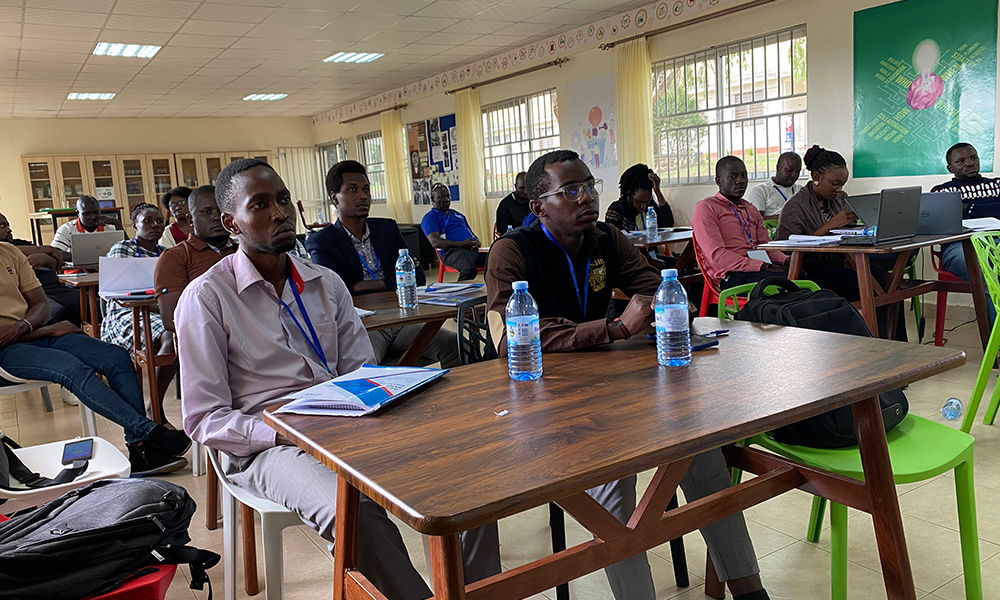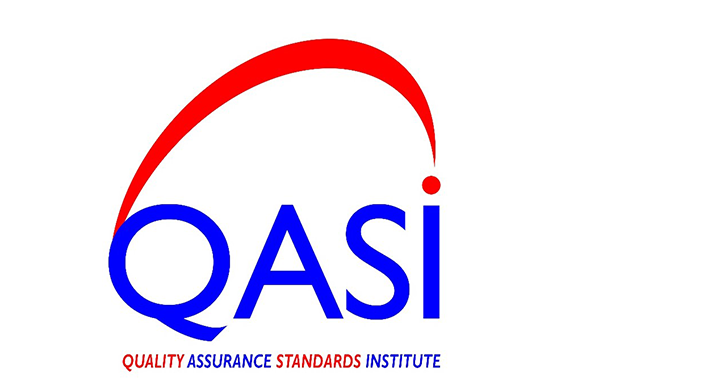ISO/IEC 17025 Laboratory Management System

With the increased risk of zoonotic disease outbreaks. Veterinary laboratories must be provided accurate and timely results while maintaining a safe working environment. These necessitate ongoing quality improvement initiatives aimed at bolstering, updating, and sustaining diagnostics, which are critical in epidemiological disease surveillance, control, and research. This can only be accomplished by accrediting veterinary laboratories on standards such as ISO 17025. This is also applicable to other non-medical testing laboratories including calibration laboratories.
ISO/IEC 17025 is an international standard for testing and calibration laboratories. It was created to ensure quality and improve processes in these laboratories. The standard has two main parts: Management Requirements, which cover the quality management system, and Technical Requirements, which focus on employee skills, testing methods, equipment, and results.
Being ISO/IEC 17025 certified shows your commitment to quality standards. As a certified professional, you can help labs demonstrate their competence and produce reliable results. This can lead to more job opportunities because many large labs value your expertise. In fact, many organizations now only contract with certified professionals and labs, as customers prefer their services. This can increase your earning potential.
As an ISO 17025 certified professional, you can:
- Improve your reputation: Become recognized as a skilled professional.
- Create new business connections: Network with other professionals and organizations.
- Gain a competitive advantage: Stand out from non-certified professionals.
- Increase laboratory effectiveness: Improve efficiency and quality within the lab.
- Access more contracts: Secure more testing and calibration projects.
- Offer expertise: Provide guidance on improving work processes.
- Deliver reliable results: Ensure accurate and efficient lab testing.
- Achieve customer satisfaction: Meet and exceed customer expectations.
QASI is excited to support you, contact us to begin with the first step!
Explore our courses and find the perfect fit for your needs.
- ISO/IEC 17025 Implementers’ course
- ISO/IEC 17025 Auditors’ course based on ISO 19011
- ISO/IEC 17025 based Conformance Management course
- ISO/IEC 17025 based Management Review course
- ISO/IEC 17025 based Statistical Process Control Course
- Individuals involved in Testing and Calibration Laboratories Management
- Individuals seeking to gain knowledge about the main processes of Laboratory Management Systems.
- Individuals interested to pursue a career in Laboratory Management
Training Days for each course: 5
Exam Duration: 1 hour
Retake Exam: Yes
For additional information, please contact info@qasi.co.ug
ISO/IEC 17025 Implementers’ course
ABOUT THIS COURSE
Course Description:
- The purpose of this course is to provide training and coaching in the Quality Management System needed to obtain accreditation according to ISO 17025:2017.
- This 5-day course covers the essential elements for competence, impartiality and consistence operation of calibration and testing laboratory.
- Major changes from ISO/IEC 17025:2005 will be highlighted during the training.
- Practical examples will also be given to ensure understanding on how to implementation the requirements of clause 4 to 8 of the standard in the laboratory.
Course objectives:
- Identify the intent and requirements of each of the main sections of the ISO 17025:2017.
- Provide skills on interpretation, explanation, and techniques of implementation of ISO 17025:2017 management and technical requirements.
- Provide a detailed understanding of how a laboratory demonstrates competence, impartiality, and consistency.
- Understand the new concepts of impartiality, risk management and risk evaluation techniques, decision rule, and process approach.
Certification
On successful completion of the course “Certificate of Successful Completion” will be issued to participants.
Resource Material
ISO/IEC 17025:2017 international standard.
Hand-outs and course material will be supplied to all participants
Training Package- Power point Presentations
Who Should Attend:
- Lab managers, Heads Lab Sections,
- Lab Management Committee
- Quality manager, Biosafety officers
- All persons implementing the lab quality management system.
- Auditors
- Trainers
- Top level Management.
- Mentors
Course Prerequisites
- Participants should have relevant educational experience, with a minimum of 2 years’ experience in QMS implementation as a Vet doctors and laboratory technologist and Lab Experience in Testing, Calibration and Sampling Labs (Inclusive of Water and Environment labs)
- An understanding of Good lab practice and vet epidemiology.
ISO/IEC 17025 Corrective Action, Action to address risks and opportunities (CA/A-RO) based on ISO 31000:2018 course
ABOUT THIS COURSE
Course Description:
- Corrective Action, Action to address risks and opportunities (CA/A-RO) course is a fundamental management tool that should be used in every quality system. The CA/A-RO course facilitates the continuous improvement effort of Laboratory Quality Management Systems by providing skills of identifying nonconformities or risks that can affect patient safety, consume resources, and adversely impact the ability to provide quality services.
- Having an effective CA/A-RO system closes the loop between identifying a nonconformity and completing the actions to eliminate the nonconformity.
Course objectives:
- Provide skills in identifying nonconformities, root cause analysis and conducting corrective and preventive action
- Understand when & why the CA/A-RO Process is implemented.
- Understand role & responsibilities surrounding the CA/A-RO Process.
- Provide knowledge in risk management, continual improvement and the implementation of improvement projects
Certification
On successful completion of the course a “Certificate of Successful Completion” will be awarded.
Resource Material
- ISO 17025:2017 international standard.
- ISO 31000- ISO for Risk Management
- Hand-outs and course material will be supplied to all participants
Who Should Attend:
- Heads of sections
- Laboratory Manager
- Quality Mangers
- Medical Technologist or Clinical Scientist
Participants include:
All persons implementing clinical quality systems
Course Prerequisites
- Potential participants must have relevant education experience in implementation of QMS.
- They must have had training on Basic QMS or Good veterinary Laboratory Practice or implementation of relevant ISO standard.
ISO/IEC 17025 Auditors’ course based on ISO 19011
ABOUT THIS COURSE
Course Description:
- Auditing is a management tool used to verify that; the conformity assessment body conforms to the requirements of ISO 17025 and to requirements established by the laboratory, and that such processes are implemented, effective, and maintained.
- The 8-days (inclusive of 2 days of practicum in the field) Internal Auditing course prepares the auditors on auditing management systems, including the principles of auditing, managing an audit program and conducting management system audits, as well as guidance on the evaluation of competence of individuals involved in the audit process.
Course objectives:
- To provide skills and tools for monitoring and verification of effective management system established in accordance with ISO17025:2017
- Ensure audit activities meet the requirements of the audit body through competent audit practice
- Get the knowledge and skills of internal auditing and use of audit checklist(s).
- Understand how to prepare and maintain internal audit records.
Certification
- Participants get certificate of successful course completion awarded at the end of the training.
- Minimum requirements for certification will include: 100% attendance of the sessions and at least 70% in the post-test.
- Participants who fail to meet the criteria above get a certificate of participation.
Resource Material
- ISO 17025
- ISO 19011
- ISO 17025checklists
- Hand-outs and course materials
Who Should Attend:
- Participants include:
- Internal auditors
- External auditors
- Laboratory managers
- Quality managers
- Technical experts
- Regulatory affairs professionals
Course Prerequisites
- ISO/IEC 17025: A general knowledge of the key principles, clauses, and requirements of the ISO/IEC 17025 standard for testing and calibration laboratories.
- ISO 19011: Familiarity with the principles and techniques for conducting audits, as outlined in the ISO 19011 standard.
- Quality management systems: A basic understanding of quality management systems and their principles.
- Auditing concepts: Knowledge of auditing principles, such as evidence collection, objective evaluation, and reporting.
ISO/IEC 17025 based Management Review course
ABOUT THIS COURSE
Course Description:
Management Review is a formal evaluation by top management of the status and adequacy of the quality system in relation to the quality policy and objectives. MR provides the cornerstone for the laboratory’s strategic planning.
Management Review Training is a critical component of QMS in veterinary laboratory services. The content within the management review should effectively address resources, risks, and opportunities, nonconformance and all aspects of the management system functionality.
Course objectives:
- Strengthen the method and structure of routine Management Reviews to ensure continuing compliance with the requirements of the ISO 17025.
- Provide detailed understanding on what metrics are monitored and why it is important to the quality system.
- Develop capacity to conduct effective management review in line with the requirements of ISO 17025 Clause 8.9.
Certification
Participants get certificate of successful course completion awarded at the end of the training.
Minimum requirements for certification will include: 95% attendance of the sessions and at least 70% in the post-test. Participants who fail to meet the criteria above get a certificate of participation.
Resource Material
- ISO 17025
- ILAC G20:2002
- Hand-outs and course materials
Who Should Attend:
Laboratory top management
- Laboratory Chiefs/ Assistant commissioner in charge veterinary laboratory diagnostics
- Section Heads, Laboratory Managers
- Quality Managers
- Technologist /technical manager.
Course Prerequisites
- Participants should be Knowledge of Management systems and ISO 17025 standard
- Should be a member of top management and or involved in strategic planning of the institution
ISO/IEC 17025 based Statistical Process Control Course
ABOUT THIS COURSE
Course Description:
- The selection, verification, and validation of methods is crucial for the technical validity of results issued to a customer. This 10-day training focused on: Validation, verification, and measurement uncertainty will equip participants with knowledge and skills to design experiments and/or computations for determining relevant performance characteristics of a measurement method. Two tracks will be designed for: testing and calibration laboratories, respectively.
- This course covers all the basic studies, from replication, linearity (reportable range), and comparison of methods, to the more advanced studies required for more complex methods, including interference, recovery, detection limit, and transference of reference intervals.
- In-depth discussion about the elements and performance criteria of how to appropriately verify an analytical method with respect to method type will be provided to the participants. At the end of the course, participants shall be able to apply the relevant statistical tools for the analysis and interpretation of validation & verification data. Elements of quality indicator(s) usage to monitor laboratory performance and change management will be inclusive.
Course objectives:
- Provide practical knowledge and skills to design experiments and/or computations for determining relevant performance characteristics of a measurement method/equipment for purposes of validation of new methods/modified ones.
- Provide practical knowledge and skills to design experiments and/or computations for determining relevant performance characteristics of a measurement method/equipment for purposes of verification before introduction in use.
- Provide practical knowledge and skills in general calibration principles and metrological traceability
Certification
- Participants get certificate of successful course completion awarded at the end of the training.
- Minimum requirements for certification will include: 100% attendance of the sessions and at least 70% in the post-test. Participants who fail to meet the criteria above get a certificate of participation.
Resource Material
- ISO 17025:2017
- CLSI Auto 8
- CLSI EP15-A3
- CLSI EP06-A
- CLSI EP09-A3
- CLSI EP17-A2
- CLSI EP21-Ed2
- CLSI C24-Ed4
- Statistical tables and charts
Who Should Attend:
Participants include:
- Heads of sections
- Quality managers
- Technical staff
Course Prerequisites
- Knowledge on implementation of QMS based on ISO 17025
- Those who are managing or performing laboratory analysis and for those responsible for maintaining quality.
Training on Sampling – Targeting (UWA, Veterinary, MWE facilities)
ABOUT THIS COURSE
Course Description:
- This training is key in selection, preparation, and treatment of samples to yield required calibration.
- Training on methods will focus on the selection of samples or sites; the plan; the preparation and treatment, of samples from materials or product to yield the required item for subsequent testing or calibration.
- This training should also emphasize on how to retain records of data that forms part of the testing or calibration.
Course objectives:
- Provide participants with knowledge and skills in selection, preparation, and treatment of samples to yield required calibration.
- Proper retention of calibration records.
- Easy retrieval of retained records.
Certification
- Participants get certificate of successful course completion awarded at the end of the training.
- Minimum requirements for certification will include: 95% attendance of the sessions and at least 70% in the post-test. Participants who fail to meet the criteria above get a certificate of participation.
Resource Materia
- Training manual
- Hand-outs and course materials
Who Should Attend:
- Heads of sections
- Quality managers
- Technical Staff
Course Prerequisites
- Participants should come from a testing laboratory implementing QMS.
- Participant should have laboratory experience in testing, calibration, and sampling laboratories.
Quality Control & Interlaboratory Comparison Training
ABOUT THIS COURSE
Course Description:
- Laboratory quality control and interlaboratory comparison is very key in ensuring reliable and quality results. This training is a capacity building strategy for equipping participants with knowledge and skills for performing QC, interlaboratory comparisons and other alternative approaches.
- Practical examples will be emphasized to understand how to implement QC and Interlaboratory comparison programs.
Course objectives:
- Provide participants with knowledge and skills in executing Quality control and interlaboratory comparison programs.
- Understand the importance of Quality control, accuracy, and precision for both quantities and qualitative tests
- Describe how to prepare and use quality control materials.
- Understand the importance of interlaboratory comparison.
- Establish acceptable control limits
Certification
- Participants get certificate of successful course completion awarded at the end of the training.
- Minimum requirements for certification will include: 95% attendance of the sessions and at least 70% in the post-test. Participants who fail to meet the criteria above get a certificate of participation.
Resource Materia
- Training manual
- ISO 13528:2015
- ISO 17025
Who Should Attend:
- Laboratory managers
- Quality officer.
- Heads of section
Course Prerequisites
Participants should come from laboratories implementing QMS and interlaboratory comparisons.
8 Laboratory Logistics Management Training – SPARS (Strengthening Performance Assessment and Recognition Strategy)
ABOUT THIS COURSE
Course Description:
- Laboratory Logistics training is a capacity building strategy geared towards improvements in ordering, receiving, and monitoring of laboratory supplies and logistics at animal health facility levels.
- The course will ensure that participants are well equipped with knowledge and skills in proper logistics management.
Course objectives:
- Provide participants with knowledge and skills in Stock Management.
- Provide skills for accurate forecasting of laboratory commodities and supplies.
Certification
- Participants get certificate of successful course completion awarded at the end of the training.
- Minimum requirements for certification will include: 95% attendance of the sessions and at least 70% in the post-test. Participants who fail to meet the criteria above get a certificate of participation.
Resource Materia
- Laboratory logistics and supplies chain management training manual
- SPARS training manual
Who Should Attend:
- Laboratory managers
- Laboratory logistics officer
- Stores’ manager
Important information on participation:
Participant should be implementing quality manage systems.
Who should attend?
- Individuals involved in Testing and Calibration Laboratories Management
- Individuals seeking to gain knowledge about the main processes of Laboratory Management Systems.
- Individuals interested to pursue a career in Laboratory Management
Other Information
Training Days for each course: 5
Exam Duration: 1 hour
Retake Exam: Yes
For additional information, please contact info@qasi.co.ug







